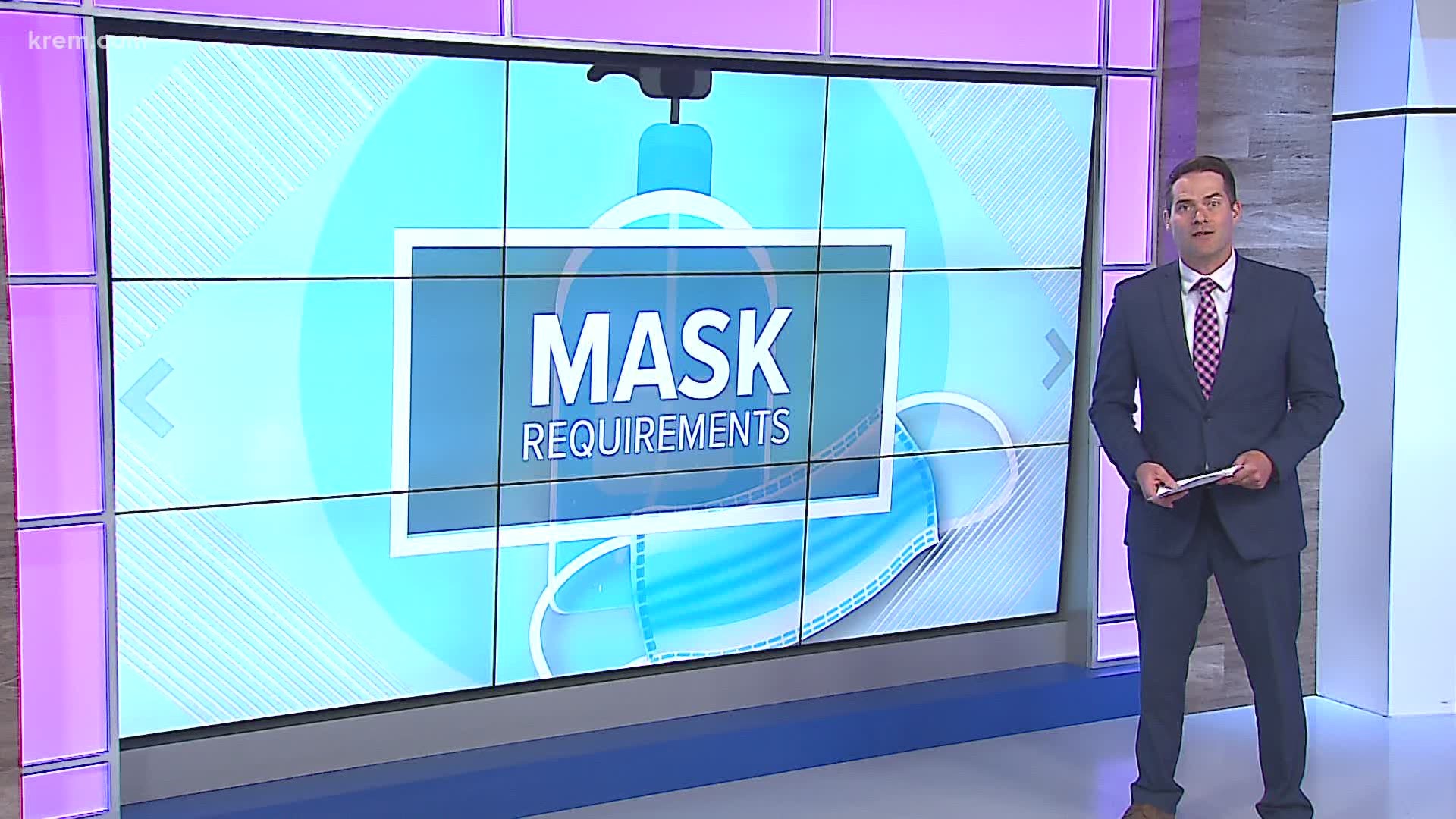MOSCOW, Idaho — The City of Moscow has voted to extend its mask mandate until January 5, 2021 amid the continuing coronavirus pandemic.
Mayor Bill Lambert said a survey showed 90 percent of people have been wearing masks in public in the Idaho city.
Face masks were required in Moscow beginning Thursday, July 2, amid a significant increase in coronavirus cases.
Masks were required for all Washington state residents effective Friday, June 26. Idaho does not have a statewide masking mandate, but local health officials are urging people to wear face coverings and stay six feet apart.
"In light of current cases and a trend towards a significant resurgence of COVID-19 infections and exposure in Moscow, it is prudent to assess the public health risks to the community as a whole," Lambert said.
On Tuesday, June 30, Idaho had its highest increase in cases since the outbreak began, with 365 confirmed and probable cases. In 24 hours, the City of Moscow received informal word that as many as three local restaurants have confirmed or possible cases of coronavirus in their employees.
Coronavirus cases in Latah County have more than doubled compared to last week, with 15 confirmed cases and five possible cases at last check.
Under Lambert's order, every person in Moscow must wear a face covering that covers their nose and mouth in any indoor or outdoor public setting where six feet of physical distancing is not possible.
Any person who "knowingly violates" provisions of the order may be charged with a misdemeanor. The maximum penalties are up to six months in the county jail and a $1,000 fine.
The order does not apply to children under five years old, but the city strongly recommends that children wear face coverings in public with the assistance and supervision of an adult.
Those with medical conditions, mental health conditions or disabilities that prevent them from a wearing a face covering are also excluded from the order.
People can remove their face coverings at a restaurant or other food establishment while eating or drinking if they can maintain six feet of physical distance. Those who are deaf or hard-of-hearing may also remove their face coverings if doing so is essential to communication.

